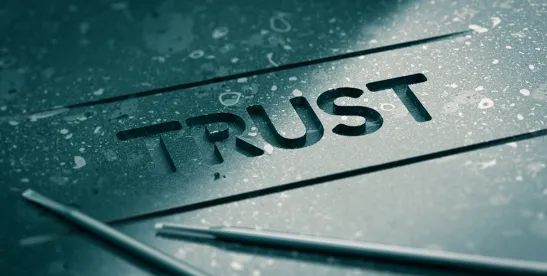In In re Est. of Prieto, the contestant’s mother executed a will in 2008 leaving her property to a trust. No. 04-22-00038-CV, 2024 Tex. App. LEXIS 6336 (Tex. App.—San Antonio August 28, 2024, no pet.). After she passed, the trial court admitted her will to probate and appointed the contestant’s brother as the independent executor. More than six years later, in 2014, the contestant filed suit, contesting the validity of the trust, sought declaratory relief related to his mother’s estate, and brought claims against the executor for breach of fiduciary duty and conversion. The executor filed a summary judgment motion on the statute of limitations. The trial court granted the motion, and the contestant appealed.
The executor’s summary judgment motion challenged the trust contest claim on the ground that it was barred by the two-year limitations period provided in section 256.204(a) of the Texas Estates Code, which states:
After a will is admitted to probate, an interested person may commence a suit to contest the validity thereof not later than the second anniversary of the date the will was admitted to probate, except that an interested person may commence a suit to cancel a will for forgery or other fraud not later than the second anniversary of the date the forgery or fraud was discovered.
Id. (citing Tex. Est. Code § 256.204(a)). The court of appeals noted that this provision may not apply to a trust contest claim, but that the parties did not argue that and seemed to agree that it did apply. So, for the purpose of the case, the court implied that it did apply without deciding as such.
The court first discussed the legal standards for the statute of limitations for challenging wills:
Generally, Texas courts do not apply the discovery rule to claims arising out of probate proceedings, even in the face of allegations of fraud. However, section 256.204(a) creates an exception to the general rule, providing that “an interested person may commence a suit to cancel a will for forgery or other fraud not later than the second anniversary of the date the forgery or fraud was discovered.” Thus, section 256.204(a)’s discovery rule applies to suits to cancel wills “for forgery or other fraud.” However, for the discovery rule in section 256.204(a) to apply, the fraud in question must be “extrinsic fraud.” “Fraud is considered ‘intrinsic’ when the fraudulent acts pertain to an issue that was, or could have been, litigated in the original suit.” “Intrinsic fraud . . . relates to the merits of the issues that were presented and presumably were or should have been settled in the former action.” A contest based on contentions that the decedent lacked testamentary capacity or was the product of undue influence are characterized as “intrinsic” fraud because they could have been litigated in the proceeding admitting the will to probate. “On the other hand, fraud is extrinsic when the fraudulent acts prevent a party from either having a trial or prevent him from having a fair opportunity to present his case.” “Extrinsic fraud is fraud that denied a party the opportunity to fully litigate at trial all the rights or defenses that could have been asserted.”
Id. The court then held that the contestant had sufficient evidence to create a fact question on extrinsic fraud:
In his affidavit, Eduardo testified that Victor “overpowered” his mother’s mind and “forced” her to sign a will and a trust she never would have signed without Victor’s influence. These actions constitute intrinsic fraud, which does not trigger section 256.204(a)’s limitations exception. However, Eduardo also testified that he repeatedly asked Victor for copies of their mother’s will and all supporting documents. Instead of providing him the documents, Victor told Eduardo that “everyone is equal and will get an equal share.” Eduardo claimed he “had no way of finding out the truth because Victor kept the documents in his safe and refused to give him a copy.” And, according to Eduardo’s testimony, until late 2013, Victor had made payments to him, which Victor characterized as distributions from their mother’s estate. Eduardo added: “Up until 2014, my brother Victor had told me that I was a beneficiary and that I would be receiving an equal amount. October 2014 was the first time I realized that was a lie.” Finally, Eduardo testified that Victor’s “fraudulent misrepresentations and concealment of critical documents induced me to delay the filing of this lawsuit.” These actions, if true, prevented Eduardo from having a fair opportunity to present his case and qualify as extrinsic fraud, which triggers the exception contained in section 256.204(a). See Because Victor complains of extrinsic fraud, we conclude the discovery rule contained in 256.204(a) applies to this case.
…
[T]he trust document and its amendment, which were not filed in the probate records, disclose the beneficiaries. Therefore, in this case, Eduardo could not have learned of his non-beneficiary status by examining the probate records, and Victor could not rely on constructive notice to conclusively prove his limitations defense
Id. The court reversed the summary judgment.




 />i
/>i
